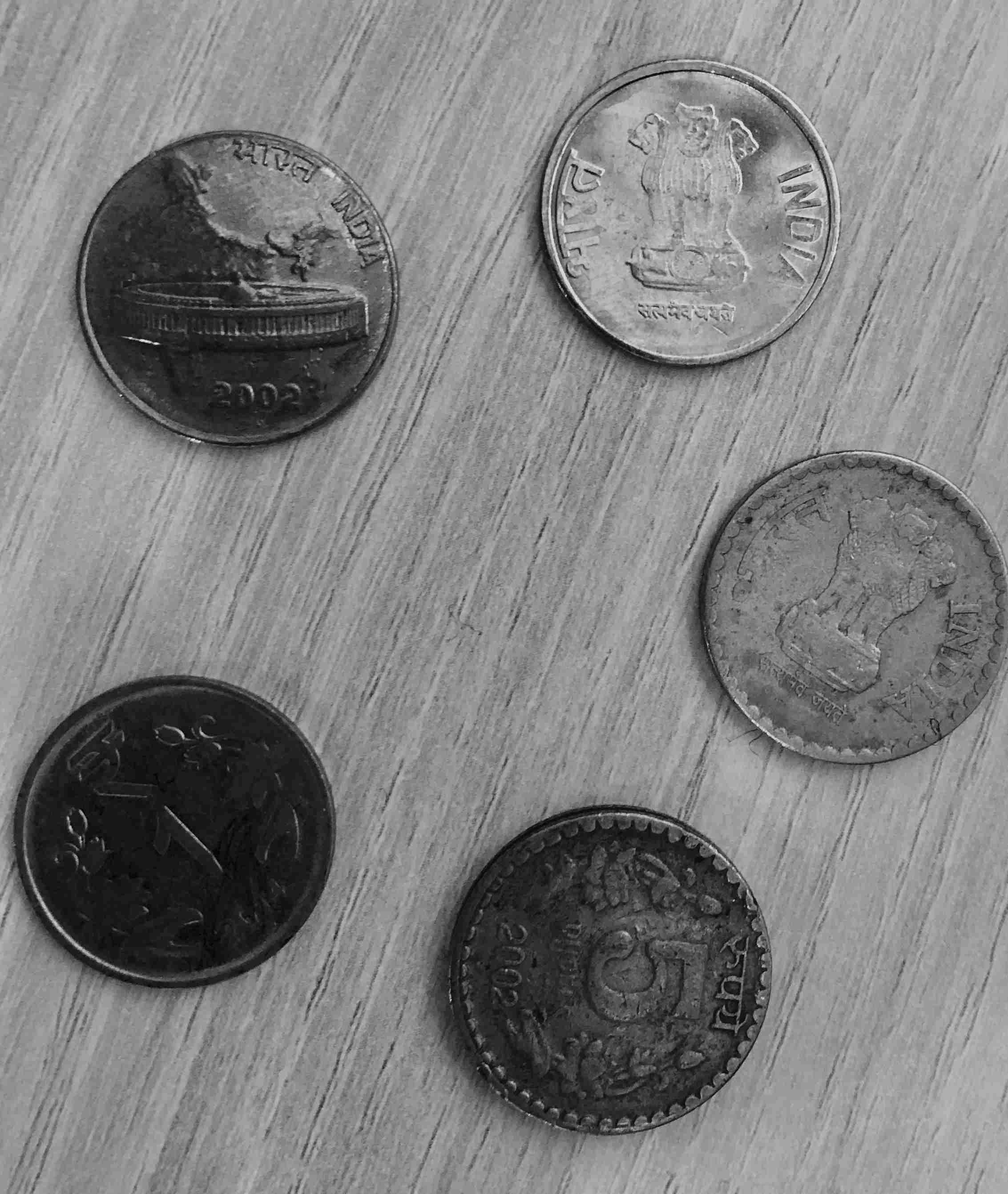下面是用C++ OpenCV工具对C++中的硬币检测代码进行说明的方法。
null
- 该代码只能在Linux环境下编译。
- 要在windows中运行,请使用文件:“coin”。o’并在cmd中运行它。但是,如果它没有运行(系统架构中的问题),那么在windows中通过对代码进行适当且明显的更改来编译它,例如:Use in place of。
- 编译命令:g++-w coin。cpp-o硬币。exe`pkg config–libs opencv`
- 运行命令:/硬币
- 包含硬币的图像必须与代码位于同一目录中。 在运行代码之前,请确保在//系统上安装了OpenCV。
解释代码片段:
#include "opencv2/highgui/highgui.hpp"
// highgui - an interface to video and image capturing.
#include "opencv2/imgproc/imgproc.hpp"
// imgproc - An image processing module that for linear and non-linear
image filtering, geometrical image transformations, color space conversion and so on.
#include <iostream>
#include <stdio.h>
// The header files for performing input and output.
using namespace cv;
// Namespace where all the C++ OpenCV functionality resides.
using namespace std;
// For input output operations.
int main()
{
Mat image;
// Mat object is a basic image container. image is an object of Mat.
image=imread("coin-detection.jpg",CV_LOAD_IMAGE_GRAYSCALE);
// Take any image but make sure its in the same folder.
// first argument denotes the image to be loaded.
// second argument specifies the image format as follows:
// CV_LOAD_IMAGE_UNCHANGED (<0) loads the image as it is.
// CV_LOAD_IMAGE_GRAYSCALE ( 0) loads the image in Gray scale.
// CV_LOAD_IMAGE_COLOR (>0) loads the image in the BGR format.
// If the second argument is not there, it is implied CV_LOAD_IMAGE_COLOR.
vector coin;
// A vector data type to store the details of coins.
HoughCircles(image,coin,CV_HOUGH_GRADIENT,2,20,450,60,0,0 );
// Argument 1: Input image mode
// Argument 2: A vector that stores 3 values: x,y and r for each circle.
// Argument 3: CV_HOUGH_GRADIENT: Detection method.
// Argument 4: The inverse ratio of resolution.
// Argument 5: Minimum distance between centers.
// Argument 6: Upper threshold for Canny edge detector.
// Argument 7: Threshold for center detection.
// Argument 8: Minimum radius to be detected. Put zero as default
// Argument 9: Maximum radius to be detected. Put zero as default
int l=coin.size();
// Get the number of coins.
cout<<" The number of coins is: "<<l<<"";
// To draw the detected circles.
for( size_t i = 0; i < coin.size(); i++ )
{
Point center(cvRound(coin[i][0]),cvRound(coin[i][1]));
// Detect center
// cvRound: Rounds floating point number to nearest integer.
int radius=cvRound(coin[i][2]);
// To get the radius from the second argument of vector coin.
circle(image,center,3,Scalar(0,255,0),-1,8,0);
// circle center
// To get the circle outline.
circle(image,center,radius,Scalar(0,0,255),3,8,0);
// circle outline
cout<< " Center location for circle "<<i+1<<" :
"<<center<<" Diameter : "<<2*radius<<"";
}
cout<<"";
namedWindow("Coin Counter",CV_WINDOW_AUTOSIZE);
// Create a window called
//"A_good_name".
// first argument: name of the window.
// second argument: flag- types:
// WINDOW_NORMAL : The user can resize the window.
// WINDOW_AUTOSIZE : The window size is automatically adjusted to fit the
// displayed image() ), and you cannot change the window size manually.
// WINDOW_OPENGL : The window will be created with OpenGL support.
imshow("Coin Counter",image);
// first argument: name of the window
// second argument: image to be shown(Mat object)
waitKey(0); // Wait for infinite time for a key press.
Return 0; // Return from main function.
}
End of explanation.
关于作者:
Aditya Prakash是印度瓦多达拉信息技术学院的本科生。他主要是用C++编写代码。他的座右铭是:迄今为止一切顺利。他打板球,看超级英雄电影,踢足球,并且是回答问题的超级粉丝。
如果你也想在这里展示你的博客,请参见 吉微博 在Geeksforgek上写客博。
© 版权声明
文章版权归作者所有,未经允许请勿转载。
THE END



![关于”PostgreSQL错误:关系[表]不存在“问题的原因和解决方案-yiteyi-C++库](https://www.yiteyi.com/wp-content/themes/zibll/img/thumbnail.svg)



